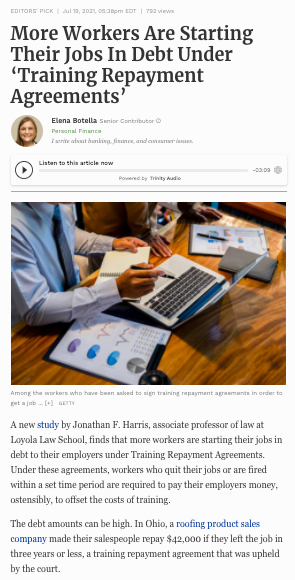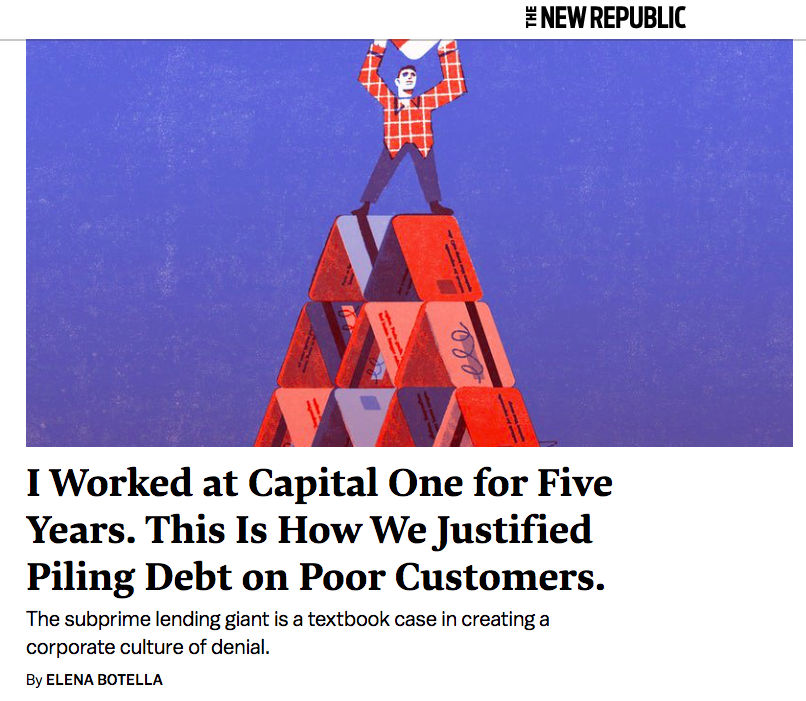For Forbes, I dug into a disturbing trend: workers being asked to sign “Training Repayment Agreements” to repay the (putative, highly inflated, and sometimes completely fabricated) cost of their on-the-job training if they quit or are fired within a set time period. In some cases, the TRAs take 3 years or longer to expire, and can involve $70,000 or more in debt.
-
-
Investment Firms Aren’t Buying All the Houses. But They Are Buying the Most Important Ones.
You may have read in The Wall Street Journal or elsewhere about the trend of investors buying up single-family homes. For Slate I did a deep-dive by reviewing the financial records of the largest home buyers and uncovered an important point: investors like Invitation Homes (a spin-off of private equity company Blackstone) don’t buy homes at random. They’re really buying up smaller, more affordable housing in growing cities like my hometown of Charlotte: in other words, the specific homes that could have been wealth-building for the working class. An interesting point about many of the giant asset managers that are buy these houses is that they’re not just managing the…
-
The view from glass towers
For The New Republic, I wrote about how euphemism, jargon, and data science all help bankers at places like Capital One distance themselves from their customer’s pain. When I talk about “pain,” here, I mean a few different things. Consumers turn to credit cards because they can’t afford what they want or need: a condition that is intrinsically uncomfortable. In some cases, credit cards may help the consumer a little bit, in other cases, they make the financial instability Americans face even worse: in both cases, that suffering is ignored.
-
Number of Americans Without Health Insurance Increased in 2018
For Slate, I wrote about the growing number of Americans going without health insurance. Immigrant children have been particularly hard-hit by this trend.
-
Without systemic change, “corporate social responsibility” will always be window dressing.
On Monday, 181 chief executives of companies like JP Morgan, Apple, and Comcast took out a full-page-ad in the Wall Street Journal to announce that their group, the Business Roundtable, was redefining the “purpose of the corporation.” Their old philosophy said “corporations exist principally to serve their shareholders.” Now, the group says, they’ll do their part to create an “economy that allows each person to succeed” by balancing the interests of shareholders, customers, employees, and the community. This is good news on paper. Obviously, it’s better to have a bunch of high-minded CEOs than for our corporations to be run by people who don’t even pretend to care about their…
-
You don’t have to boycott CVS over the birth control debacle
Confused about what exactly was happening last week in the #CVSDeniesCare debacle? I broke things down for Slate. Unless you’re a pharmacist, you shouldn’t be upset that “pharmacy benefit managers” like CVS/Caremark try to negotiate down how much they’ll reimburse pharmacies for prescription drugs. There’s absolutely no reason to think CVS/Caremark is targeting birth control specifically, and if PBMs didn’t try to negotiate reimbursement rates with pharmacies, the cost of buying health insurance would skyrocket. Although I didn’t cover the issue of political contributions in my Slate piece, it’s also worth noting that in the 2018 campaign cycle, of CVS, Target, Walmart, Rite-Aid and Walgreens, only CVS donated more to…





